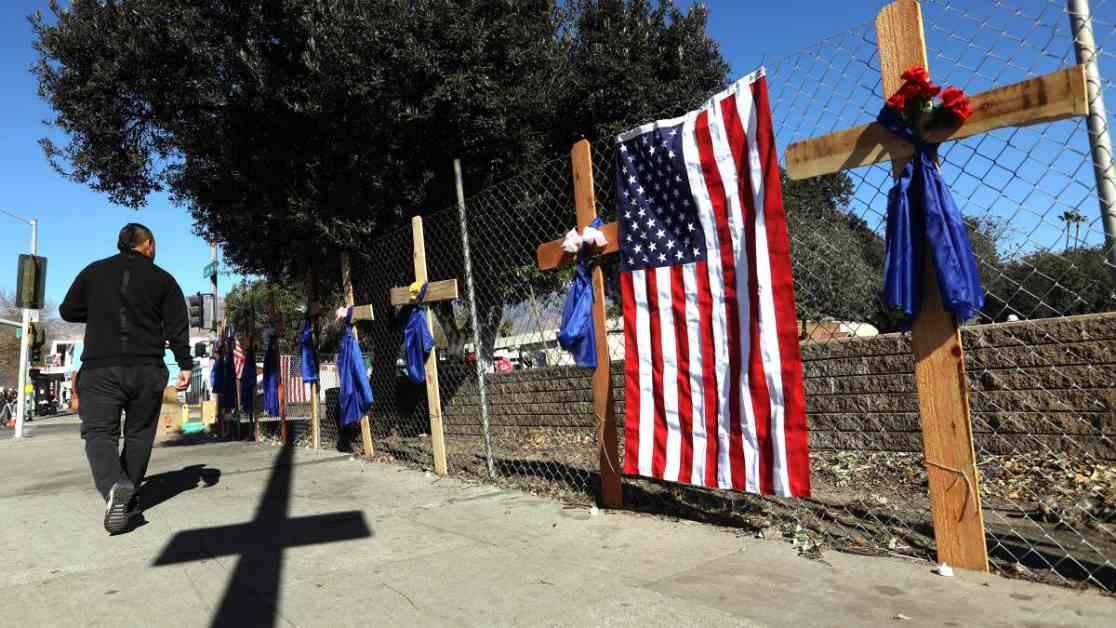Altadena Faces Rising Threat of Urban Wildfires
In recent years, California has been grappling with the devastating impact of urban wildfires, with Altadena emerging as a poignant example of the changing landscape of these natural disasters. Traditionally, wildfires in California primarily affected higher-income white households, with a disproportionate impact on seniors and men. However, a disturbing trend has emerged in recent times, shedding light on a shift in victim demographics.
The Eaton fire, which claimed the lives of 17 individuals, starkly underscores this evolving pattern. Shockingly, more than 70% of the victims were Black, and 64% were women. These statistics serve as a sobering reminder of the changing face of wildfire casualties, reflecting the broader impact of intensifying fires encroaching upon densely populated areas.
A study conducted by U.S. Forest Service researchers in 2023 revealed a concerning reality: new fire regimes are increasingly encroaching on urban census tracts across California, exposing a more diverse population to the ravages of wildfires. This unsettling development signifies a significant shift from the traditional profile of wildfire victims, with Latino, Asian, and Black communities now bearing the brunt of these disasters.
Experts caution that this trend may exacerbate in the future, necessitating a proactive approach to wildfire preparedness and community outreach. The need for heightened awareness and readiness among residents of urbanized neighborhoods has never been more pressing, as the risk of wildfires looms large over unsuspecting communities.
Challenges in Evacuation Orders
The tragic events surrounding the Eaton fire shed light on critical shortcomings in emergency response and evacuation procedures. Delays in issuing evacuation orders have come under scrutiny, with significant disparities in the timing of alerts exacerbating the loss of lives.
In the case of the Eaton fire, a stark divide emerged along North Lake Avenue, where residents on the western side faced fatal delays in receiving evacuation orders. The consequences of these delays were harrowing, with all 17 fatalities occurring in areas deprived of timely evacuation warnings. This stark contrast in response times underscored the profound impact of evacuation protocols on saving lives during wildfire emergencies.
Residents of western Altadena, marked by historical redlining practices and demographic disparities, voiced feelings of neglect and abandonment in the face of the fire’s relentless advance. The geographical divide along racial and income lines further underscored the unequal distribution of resources and support during times of crisis, amplifying the vulnerability of marginalized communities.
Personal Stories of Tragedy and Loss
Amidst the chaos and devastation of the Eaton fire, poignant tales of loss and heartache emerged, painting a vivid picture of the human toll of wildfires. Personal accounts such as that of Carolyn Burns, a 56-year-old woman who perished in the blaze, serve as poignant reminders of the individual tragedies that unfolded during the disaster.
Burns, a wheelchair-bound individual, tragically succumbed to the flames, highlighting the challenges faced by vulnerable populations in the midst of a wildfire emergency. Her family’s anguish and frustration at the perceived failures in evacuation protocols echo the broader concerns surrounding the efficacy of emergency response measures in safeguarding lives.
The heart-wrenching story of Dalyce Curry, a 95-year-old grandmother who lost her life in the fire, further underscores the urgency of addressing evacuation procedures and ensuring the safety of all residents, especially the elderly and disabled. The emotional accounts of family members grappling with the loss of loved ones underscore the profound impact of wildfires on communities and individuals.
In the aftermath of the Eaton fire, a call to action resonates, urging policymakers, emergency responders, and communities to collaborate in enhancing preparedness, awareness, and support for vulnerable populations. The lessons learned from this tragedy must serve as a catalyst for transformative change in wildfire response strategies, ensuring the safety and well-being of all Californians.
The devastating toll of the Eaton fire serves as a stark reminder of the unpredictable and merciless nature of wildfires, underscoring the imperative of proactive measures to mitigate risks and protect lives. As California grapples with the escalating threat of urban wildfires, the resilience and unity of communities in the face of adversity will be crucial in safeguarding against future tragedies.


